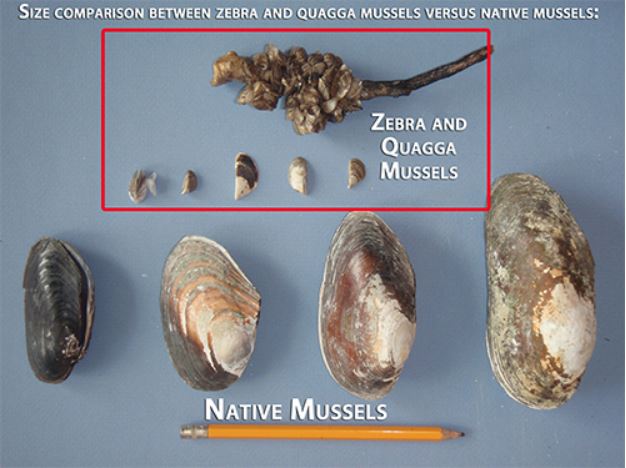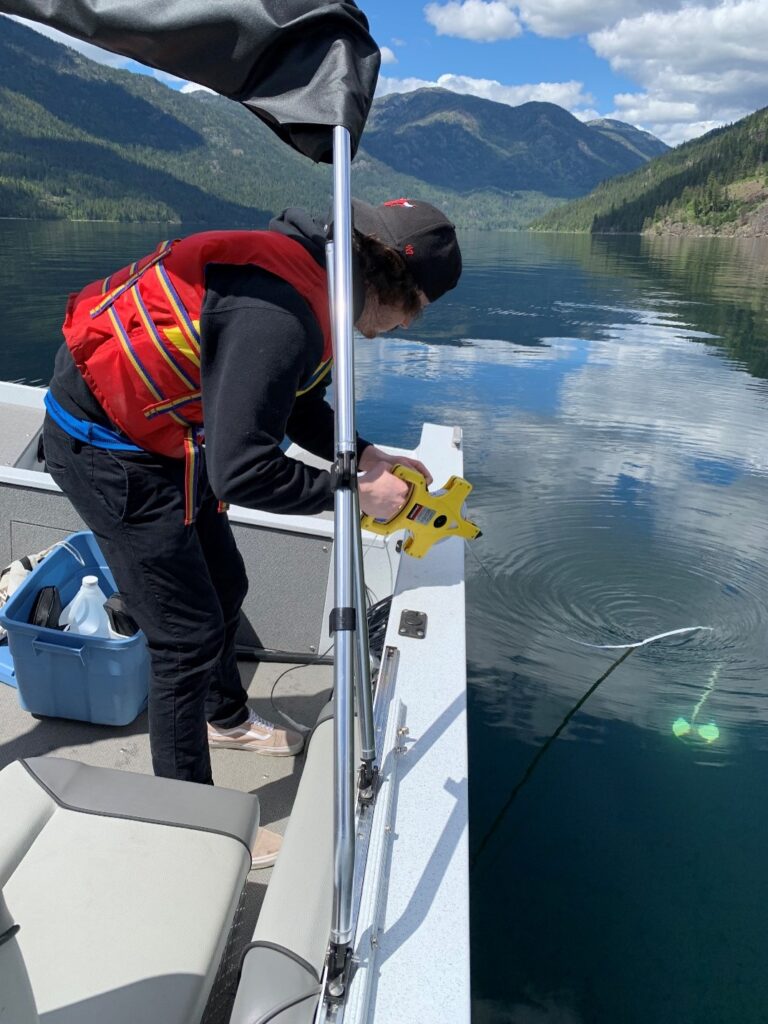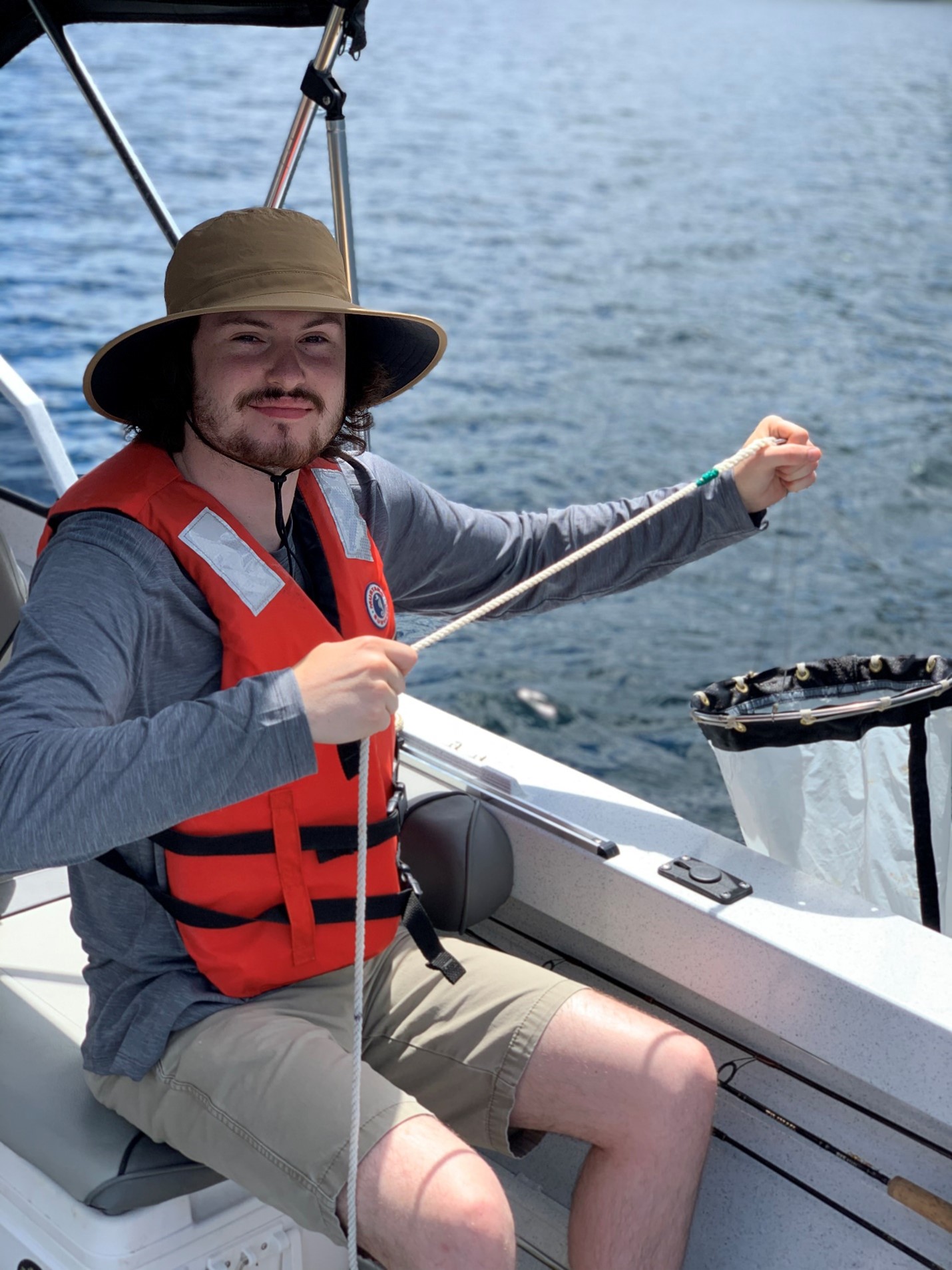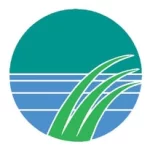There’s an invader moving west! Invasive zebra and quagga mussels, native to Eastern Europe, have been moving westward across North America since the late 1980s. While not yet detected in B.C., these invasive species pose a serious threat to B.C.’s aquatic ecosystems by disrupting food chains, impacting fish populations, and having serious economic impacts on infrastructure such as hydro and water treatment facilities as well as the freshwater recreational sectors. In 2015, the province established the Invasive Mussel Defence Program to prevent the introduction of zebra and quagga mussels into B.C. The program’s prevention efforts are focused on inspecting boats, monitoring lakes, educating the public, and coordinating actions with neighbouring jurisdictions.

Comparison of Invasive & Native mussel species
Since 2018, the Habitat Conservation Trust Foundation (HCTF) has partnered with the Ministry of Environment and Climate Change Strategy (ENV) to support invasive mussel monitoring in B.C.’s waterbodies. In 2021, over $148,000 in funding from ENV was provided to 12 organizations to support lake monitoring efforts across the province. The efforts of these conservation partners are focused on early detection monitoring through the collection of water samples, and educating the public about preventative practices.
For many monitoring teams, this year presented the additional challenge of dealing with extreme heat and fire conditions. Conservation practitioners, such as Suzanne Adrain-Vincent of the Christina Lake Stewardship Society (CLSS) and her team have faced an unprecedented fire season this year. Despite the “notable increase in recreational users at the lake over the past two summers, some heavy wildfire smoke, and scheduling one sampling event around water bombers, the summer program has been great” said Suzanne.
Monitoring activities have also proven to be an opportune chance for public outreach. “CLSS uses our sampling activities as an opportunity to teach people on the threat of invasive mussels (because everyone asks what we are fishing for when they see the equipment)” said Suzanne. Additionally, information kiosks at boat launches are helping to expand understanding and best practices beyond boaters. “We have noted that most boat operators are familiar with the Clean, Drain, Dry practices, but many of the non-motorized water users – floaties, kayaks, paddleboards – still do not understand that their watercraft and equipment can transport invasive mussels.”
Once the sampling season is concluded, HCTF anticipates that monitoring data will have been collected at 60+ waterbodies throughout B.C. with nearly 800 samples analyzed by a designated lab. To date, all samples have tested negative for zebra and quagga mussels.

Secchi Disc sampling to measure water clarity with CLSS
How you can help:
Report any suspected invasive species via the provincial “Report Invasives BC” smartphone application (available for download from gov.bc.ca/invasive-species) and any suspected invasive zebra or quagga mussels to the Report All Poachers and Polluters hotline 1-877-952-7277.
Clean, Drain, Dry when moving gear and watercraft from one waterbody to another. Remove all plants and mud before moving to a new water body. Properly drain all compartments, pull the drain plug and allow to dry before moving to another waterbody.
HCTF’s Invasive Mussel Monitoring Grant Program will continue in 2022. If you are interested in participating, HCTF will be accepting grant applications for the Invasive Mussel Monitoring Grant Program from early December 2021 until February 1st, 2022.
HCTF Contact:
Barb von Sacken
Project Coordinator
Habitat Conservation Trust Foundation







